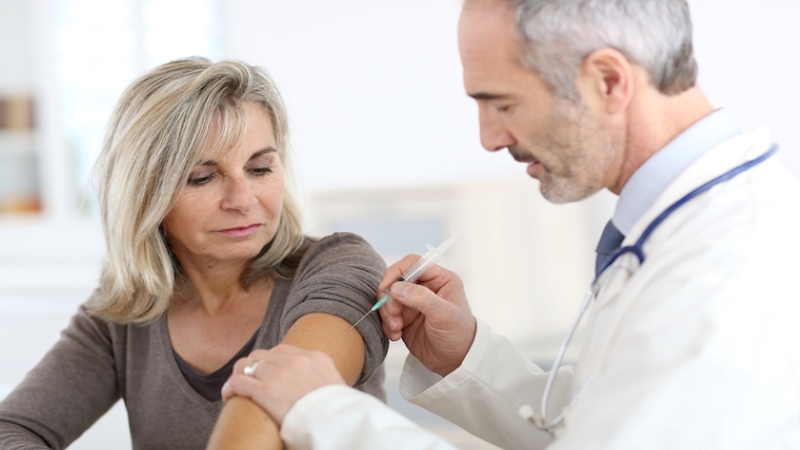Both Pfizer and Moderna have developed COVID-19 vaccines that are considered to be extremely effective against the virus. | Shutterstock
Both Pfizer and Moderna have developed COVID-19 vaccines that are considered to be extremely effective against the virus. | Shutterstock
Jeffrey Byrnes, a medical ethicist and assistant professor of philosophy at Grand Valley State University in Allendale Charter Township, answers key questions about the new COVID-19 vaccine that are likely on the minds of Michigan residents, according to Bridge Michigan.
Byrnes said that distributing the vaccine fairly should be the state's top priority. He adds that public trust is imperative amid the COVID-19 pandemic; distrust will only cause panic.
"Maximize the benefits," Byrnes told Bridge Michigan. "Given that we cannot vaccinate everyone at once, how do we allocate the first doses to get maximal benefit to all the people? How do we administer this vaccine in a way that both treats people fairly and ensures an equitable result? How to make allocation decisions and carry out vaccinations in a way that earns public trust and establishes a sense of community ownership of the process? We must show the public what we are doing."
Byrnes said that the state is on a mission to protect Michiganders and believes the vaccine will greatly benefit its citizens. He also acknowledged that the biggest task is to gain the trust of the minority population.
"The state absolutely has an ethical obligation to protect its citizens," Byrnes said, according to Bridge Michigan. "Yet the state cannot be falsely naive about the history of our present situation. The state has in its possession a vaccine that it believes will benefit its minority populations. Yet the state must acknowledge that minority populations may not simply take the state’s word on that. When the state’s minority populations have had time to review the evidence and have seen the vaccine in their communities, then they can choose to be vaccinated, if they feel comfortable doing so."
Because the vaccine supply is limited, the people who are at a higher risk of contracting the virus and suffering complications will be first to receive it. It will ultimately take quite some time to vaccinate every citizen in Michigan.
"If we had the necessary quantity of vaccine and the capacity, then we would distribute it all simultaneously," Byrnes told Bridge Michigan. "Given that the supply is limited, we are forced to make difficult decisions about the order of distribution. Comparing the secondary benefits to the community of vaccinating a teacher and a power line worker cannot be undertaken in the realm of ethics alone. It requires input from experts in fields like statistics or data science who can model likely benefit models."
Byrnes told Bridge Michigan that prison and homeless shelter staff will be included in Phase 1B. Phase 1A will include frontline workers and health care professionals. The general population will receive the vaccine at a later date.
"I think what might prompt the question is the fact that staff of homeless shelters and prisons are identified specifically as prioritized in Phase 1B, while residents of those institutions will receive vaccination along with the broader population," Byrnes told Bridge Michigan. "From my understanding of the epidemiology, there is reason to think that vaccinating the staff is an effective use of a small number of vaccines — largely because they have contact with people on the outside and would likely bring the virus in with them."


 Alerts Sign-up
Alerts Sign-up